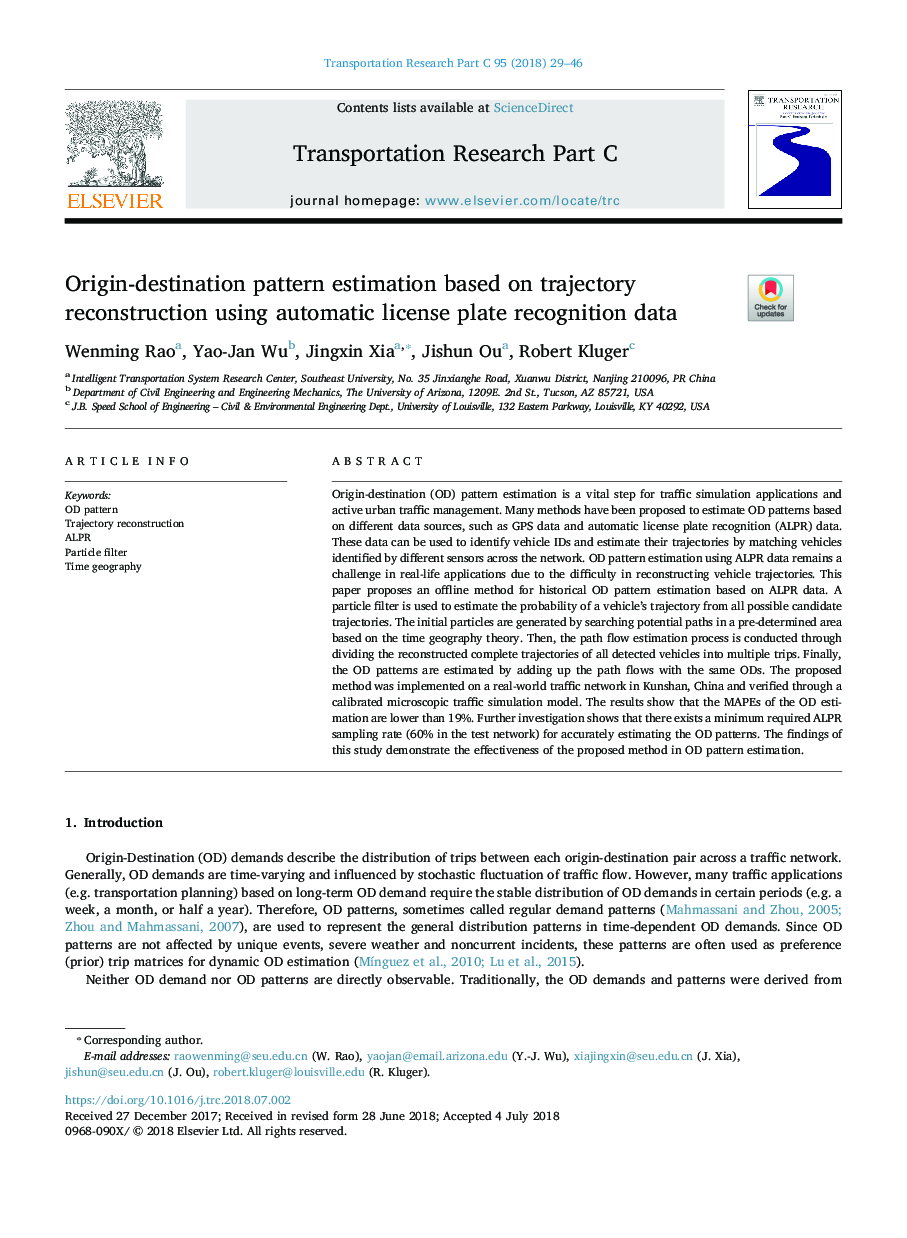| Article ID | Journal | Published Year | Pages | File Type |
|---|---|---|---|---|
| 6935635 | Transportation Research Part C: Emerging Technologies | 2018 | 18 Pages |
Abstract
Origin-destination (OD) pattern estimation is a vital step for traffic simulation applications and active urban traffic management. Many methods have been proposed to estimate OD patterns based on different data sources, such as GPS data and automatic license plate recognition (ALPR) data. These data can be used to identify vehicle IDs and estimate their trajectories by matching vehicles identified by different sensors across the network. OD pattern estimation using ALPR data remains a challenge in real-life applications due to the difficulty in reconstructing vehicle trajectories. This paper proposes an offline method for historical OD pattern estimation based on ALPR data. A particle filter is used to estimate the probability of a vehicle's trajectory from all possible candidate trajectories. The initial particles are generated by searching potential paths in a pre-determined area based on the time geography theory. Then, the path flow estimation process is conducted through dividing the reconstructed complete trajectories of all detected vehicles into multiple trips. Finally, the OD patterns are estimated by adding up the path flows with the same ODs. The proposed method was implemented on a real-world traffic network in Kunshan, China and verified through a calibrated microscopic traffic simulation model. The results show that the MAPEs of the OD estimation are lower than 19%. Further investigation shows that there exists a minimum required ALPR sampling rate (60% in the test network) for accurately estimating the OD patterns. The findings of this study demonstrate the effectiveness of the proposed method in OD pattern estimation.
Related Topics
Physical Sciences and Engineering
Computer Science
Computer Science Applications
Authors
Wenming Rao, Yao-Jan Wu, Jingxin Xia, Jishun Ou, Robert Kluger,
